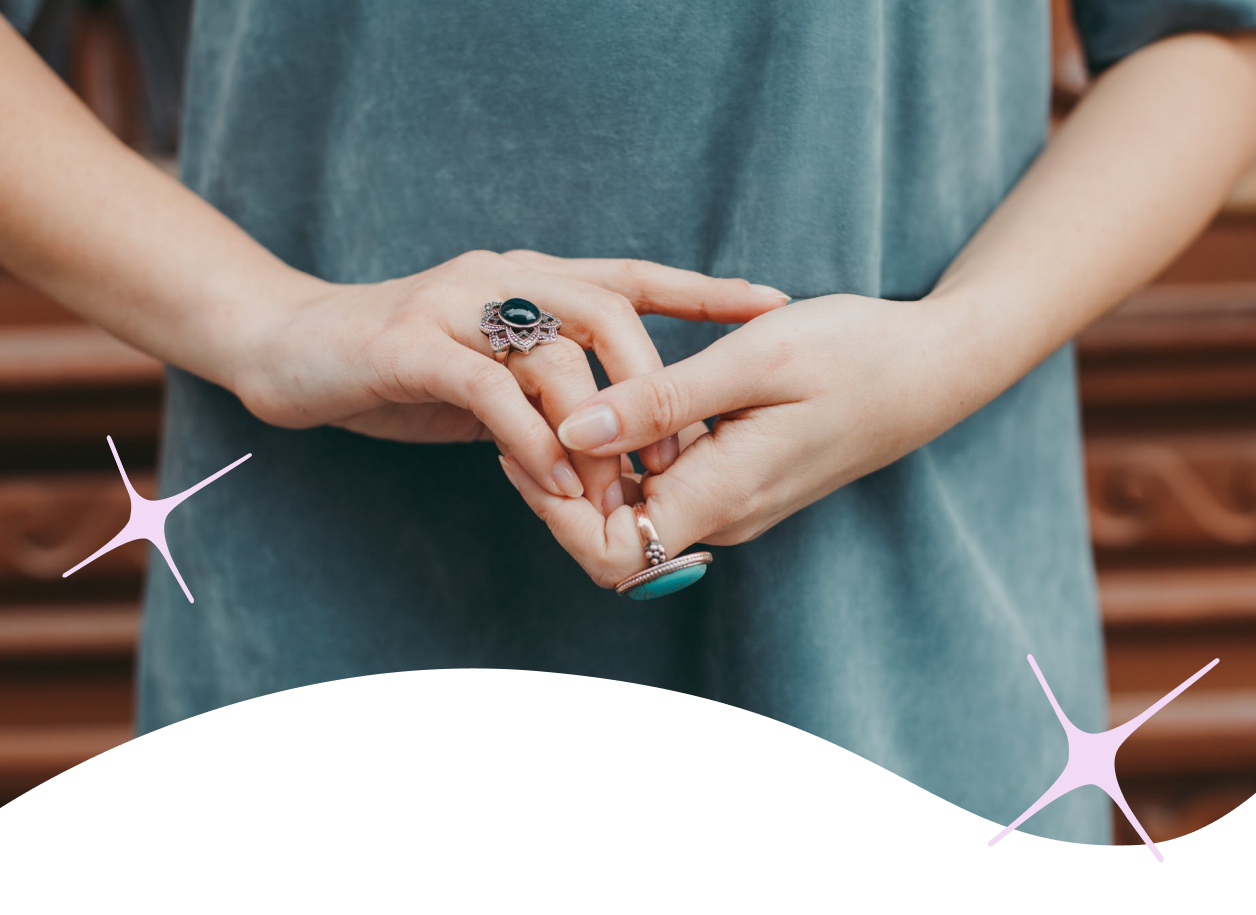Orgasms can be tricky, and sometimes they’re hard to achieve. Very often the lack of an orgasm, especially for people with a vulva, is excused by the partners’ lack of effort or skills in the sexual pleasure department. However, sometimes a problem lies deeper, and you might actually be suffering from anorgasmia. Get Flure supportive guide on how to recognize your condition and how to treat it.

What is anorgasmia?
If you’re not familiar with the term anorgasmia, it comes from the medical field and refers to a condition where the person is unable to have an orgasm, regardless of what they try in bed and how long they are stimulated for. We predominantly see anorgasmia in women, but this is a known issue for male part of the population as well.
Types of anorgasmia
There are four types of anorgasmia known today.
Primary anorgasmia
When someone is born with a congenital issue, sometimes it prevents them from ever achieving an orgasm.
Secondary anorgasmia
This is a condition when someone was successful in reaching orgasms before but lost it later in life due to medical reasons, both physical and mental. Better to have loved and lost, than never to have loved at all, huh?
Side note: Sometimes the secondary anorgasmia is provoked not by the medical condition as such, but by the drugs that are prescribed as a treatment, so if someone’s feeling that their orgasms changed ever since their medical condition altered, they might need to talk to their doctor about possible medication alternatives.
Situational anorgasmia
This type of anorgasmia is arguably the best of the possible ones because with it you can experience orgasm, although only under certain conditions. For example, through masturbation or vaginal sex.
Causes of anorgasmia

There are several reasons for anorgasmia to develop, and there is still not enough research, so our knowledge is limited. However, here are the main causes of this unpleasant issue.
Menopause
When a female reaches menopause age, a lot starts to change in the body. Unfortunately, one of the side effects is losing your orgasm. We know ladies, it’s really not fair! It’s believed that the estrogen level drop, typical for menopause, is to blame.
Delayed ejaculation
Anorgasmia in men is often a byproduct of delayed ejaculation (DE) when a man can’t reach an orgasm for an extended period of time. DE is not a dysfunction but rather a result of stress, medication they’re taking, neurological or other medical issues. In any case, if a man is having sex and getting to the O-town takes forever, he can lose the momentum and end the act orgasmless.
Medical conditions
It’s likely that we don’t know even half the truth about anorgasmia, its origin, and the best ways of treatment yet. However, we have a rather good understanding of what diseases can be a symptom or a cause of anorgasmia. If you’d like to get the full list, it’s best to reach out to your local doctor, but here are some of the conditions:
- Thyroid diseases
- Multiple sclerosis
- Diabetic neuropathy
- Hyperprolactinemia
- Low testosterone in men
- Depression
Drug prescriptions
Some drugs that we take to treat our illnesses cause anorgasmia. There is no limit to how crazy the drug side effects get, right? Among such drugs, ironically, are many antidepressants that are prescribed to treat the blues of depression but end up creating more issues in one’s personal life.
Substance abuse
This is not widely talked about, but alcohol and substance abuse can result in anorgasmia too. It’s not clear whether all drugs cause it, but if you need a reason to stay away from drugs – here is your sign!
Abuse and trauma
If someone experiences any form of abuse, including sexual, and suffers from trauma, they can develop anorgasmia as a result.
Extreme stress and anxiety
People can lose orgasm if they’re undergoing a radically stressful period of their lives or if this is an ongoing situation for them. For example, someone burdened by financial and housing issues can reach a point of exhaustion and anxiety that triggers anorgasmia, along with other complications.
Religion and upbringing
The way we are raised and the religion we are taught as kids influences our adult lives immensely. Do you remember the episode on Sex and the City where Miranda slept with a guy who needed to shower immediately after sex because he was taught that it was a sin? This is one of the tragic consequences of religious indoctrination that people deal with when they are growing up.
Grief
Grieving someone we loved and cared for changes our brain chemistry. For some people, the horror and tragedy of losing a friend, a lover, or a parent can cause anorgasmia.
To conclude
Overall, men and women can get anorgasmia because of physical or psychological reasons. It's very frustrating because diagnosing and getting to the root cause can be difficult and require a lot of time. However, if you suspect that you suffer from it, it’s best to investigate why this is happening. Anorgasmia lowers your quality of life because sex is an important element of the human experience. Also, it can be a symptom of another health issue that shouldn’t be left unattended.
How to treat anorgasmia

If you require anorgasmia treatment, it’s best to go straight to the doctor’s office for advice, and not the internet. It’s such a complex and understudied issue that the risk of harming yourself is high if you choose to follow Dr Google’s instructions.
There are a lot of medication options available, and your certified doctor will be able to prescribe the most efficient option. It’s possible that you will have to change a couple of medications or dosage levels before you find the one that works for you.
However, before moving on to drugs, you’ll need to diagnose and understand your anorgasmia better. Is it lifelong or acquired? What caused it? Is it linked to mental or physical issues?
The cure might lie in therapy as well, so don’t disregard this treatment option. Some people are sent to couples’ and even sex therapy, and they manage to cure anorgasmia without taking the medication at all.
Mentally coping with anorgasmia
Suffering from anorgasmia can be tiring, embarrassing, and sad. As you’re undergoing the treatment, don’t forget about your mental health and work together with your partner, if you have one.
No matter how unwilling you are to bring this up, talk about your issue openly. If you struggle with orgasms, chances are your partner is able to see that something’s wrong and they worry about you. Tell them what’s going on and how it makes you feel. They can’t fully understand and support you until you communicate with them about it.
As you’re having sex with anorgasmia, switch your focus from the final destination to the journey. Explore erogenous zones, appreciate the touching, and focus on how it makes you feel. You might even skip sex altogether for some time and focus on foreplay and masturbating your partner.
Lastly, experiment with what you do sex-wise. Try different locations and positions for sex, add toys, New role-play scenarios can reignite the spark and, potentially, help cure your anorgasmia.
Flure isn’t just a dating app—it’s your gateway to meaningful connections and unforgettable experiences. Whether you’re seeking new friendships, someone special, or just exploring, Flure makes it easy to find your kind of people. Built on trust, safety, and authenticity, Flure turns your online dating into something truly magical. Ready to make connections that matter? Join Flure today and see where it takes you!








